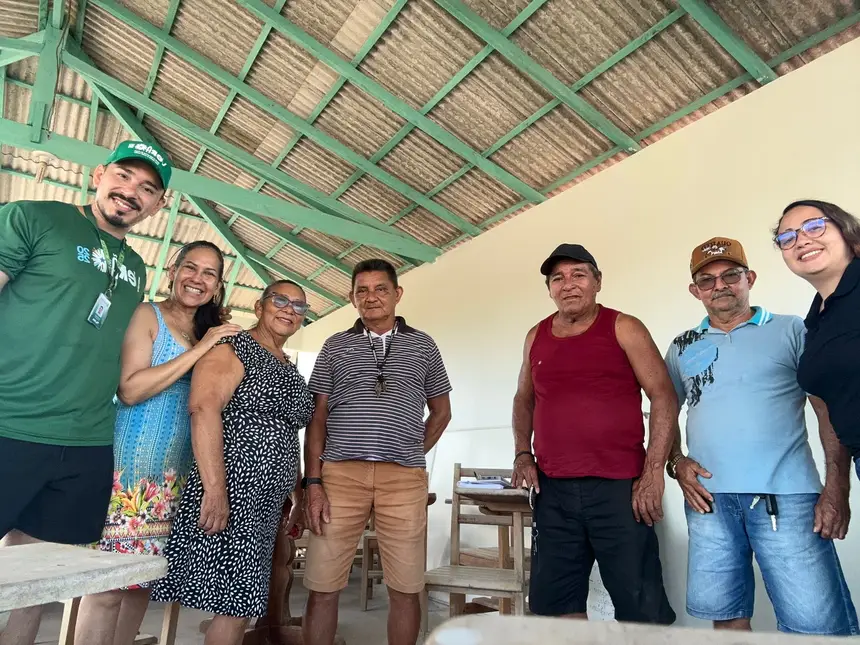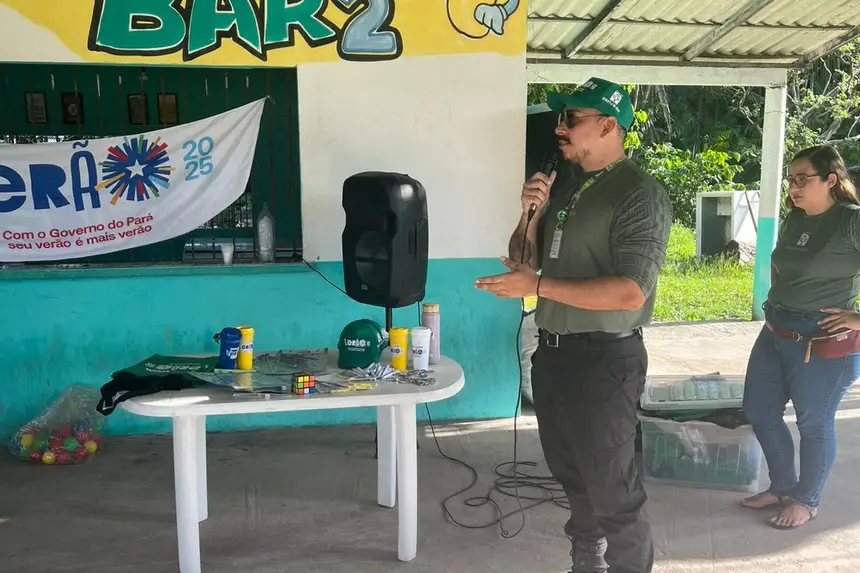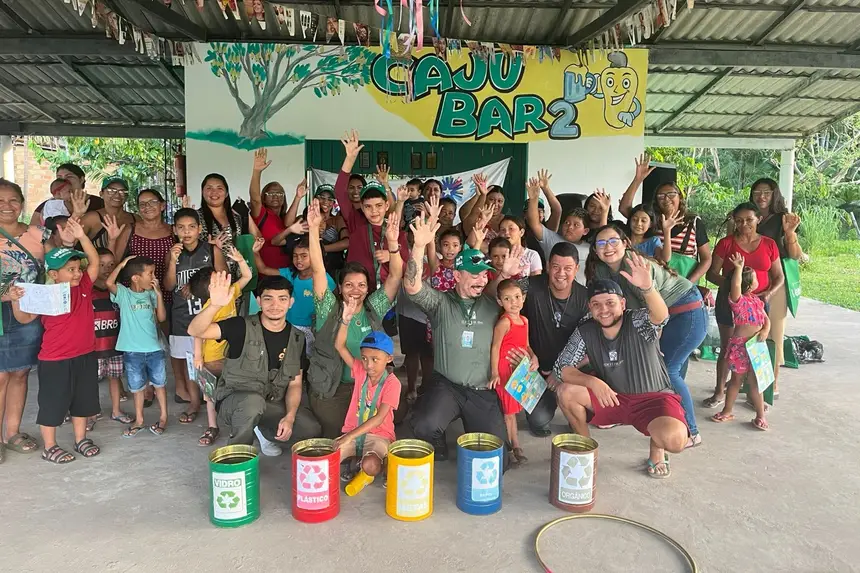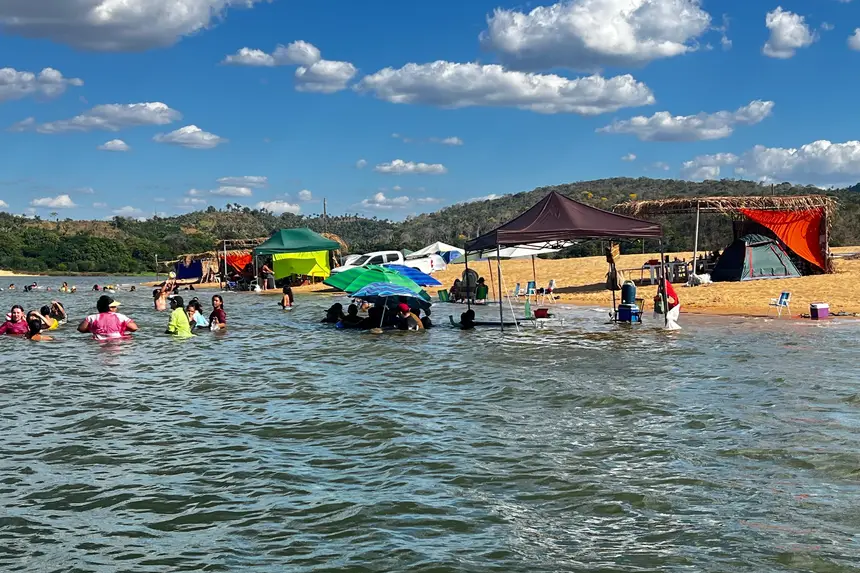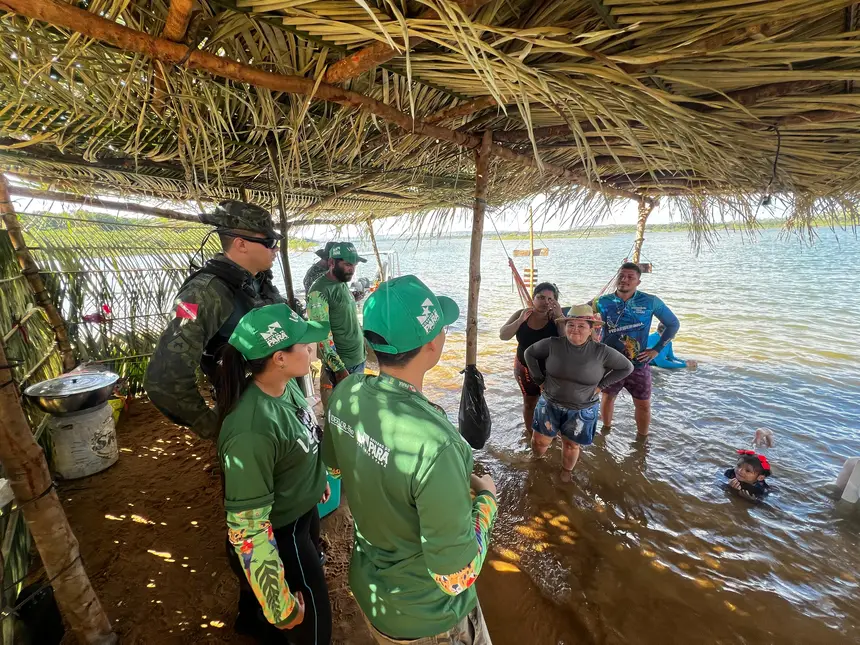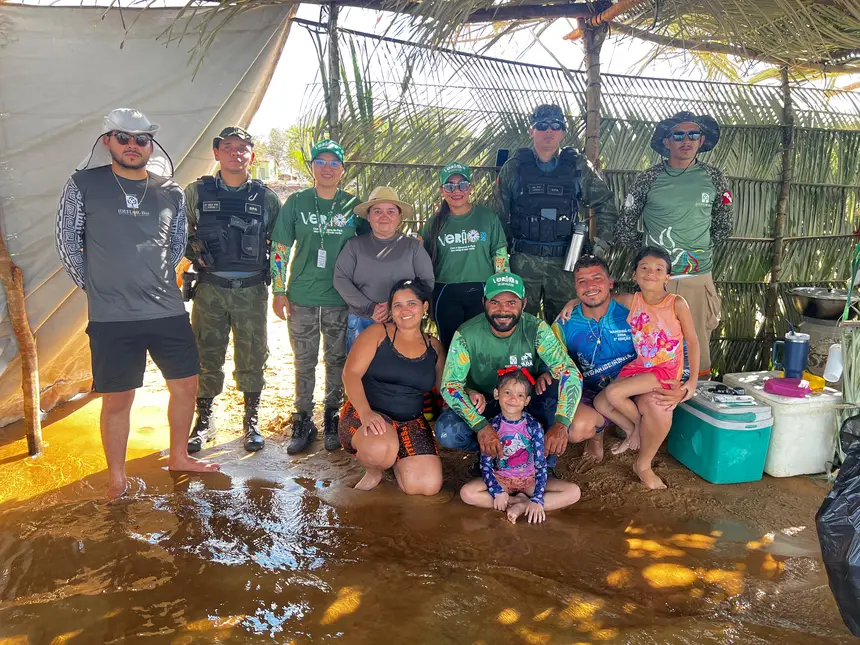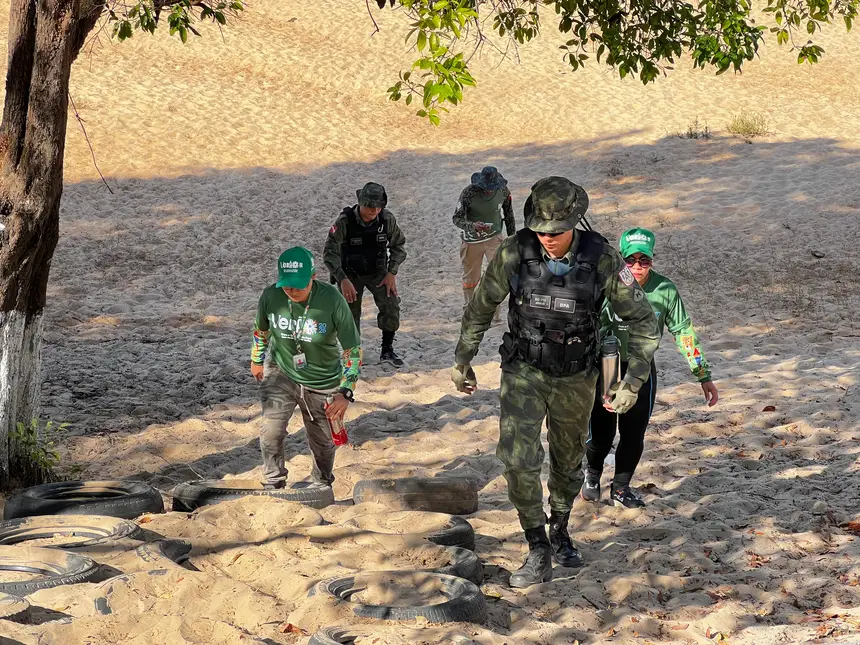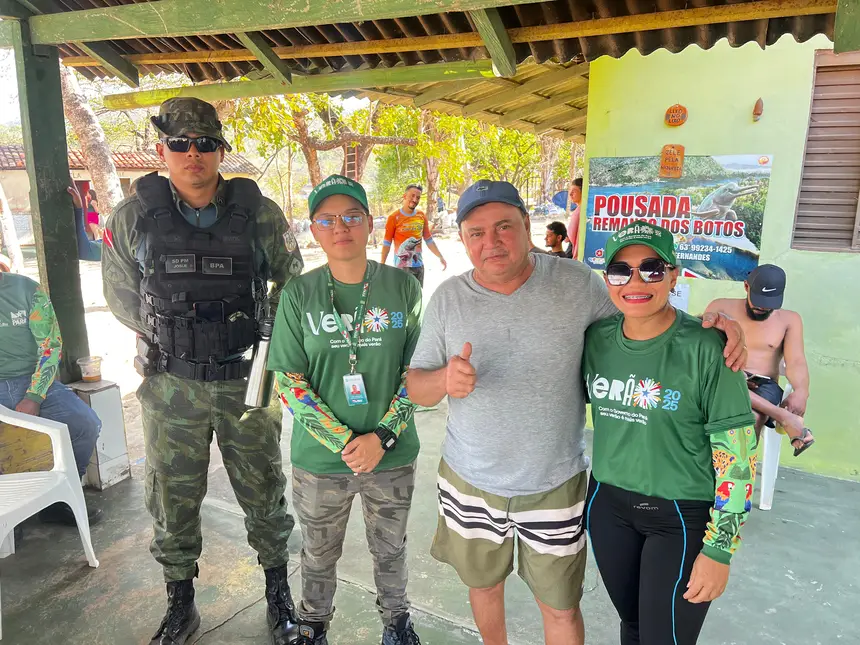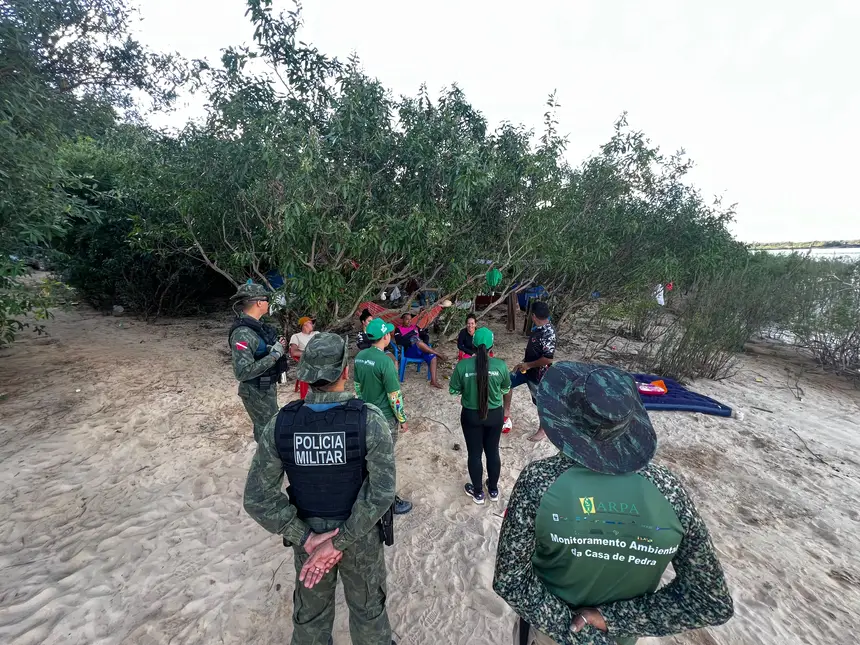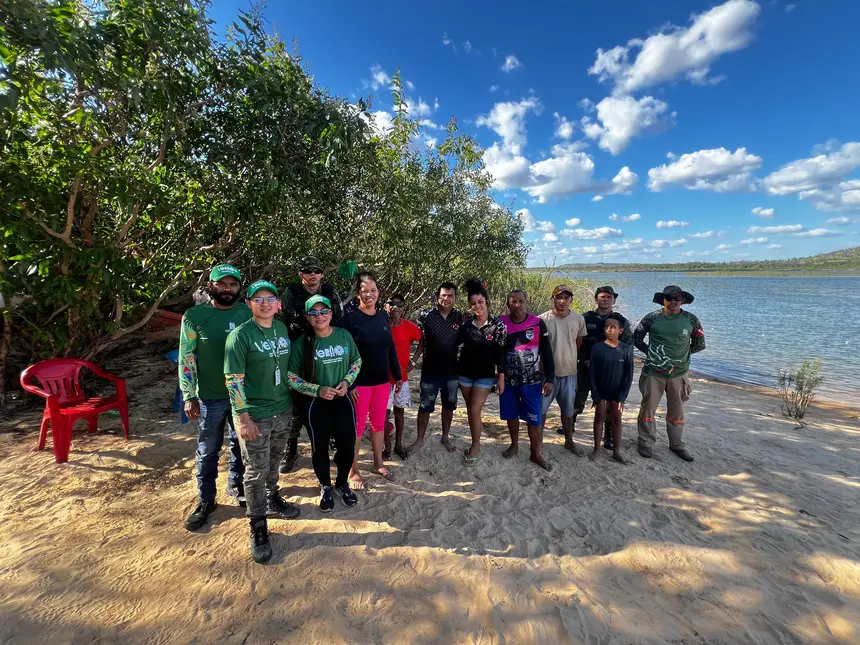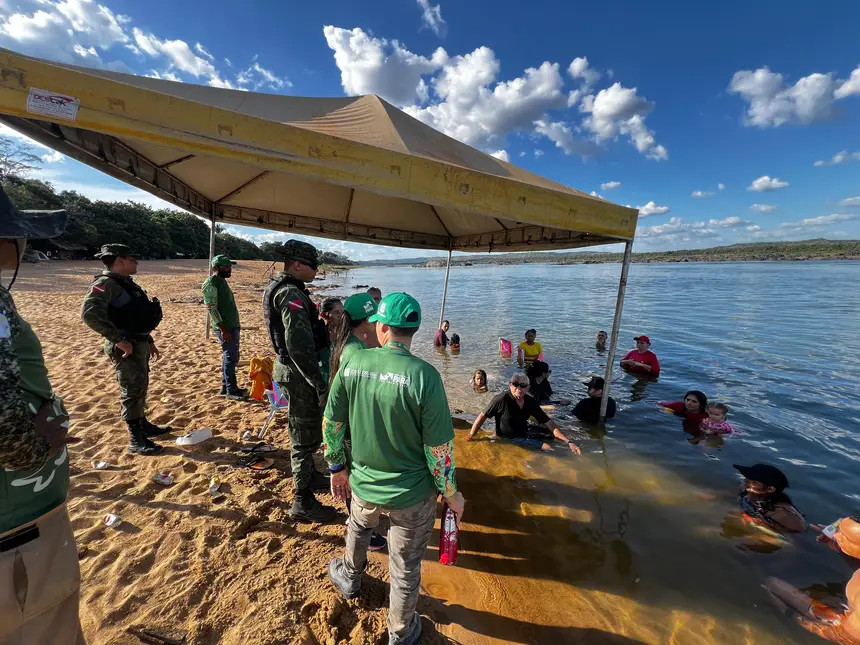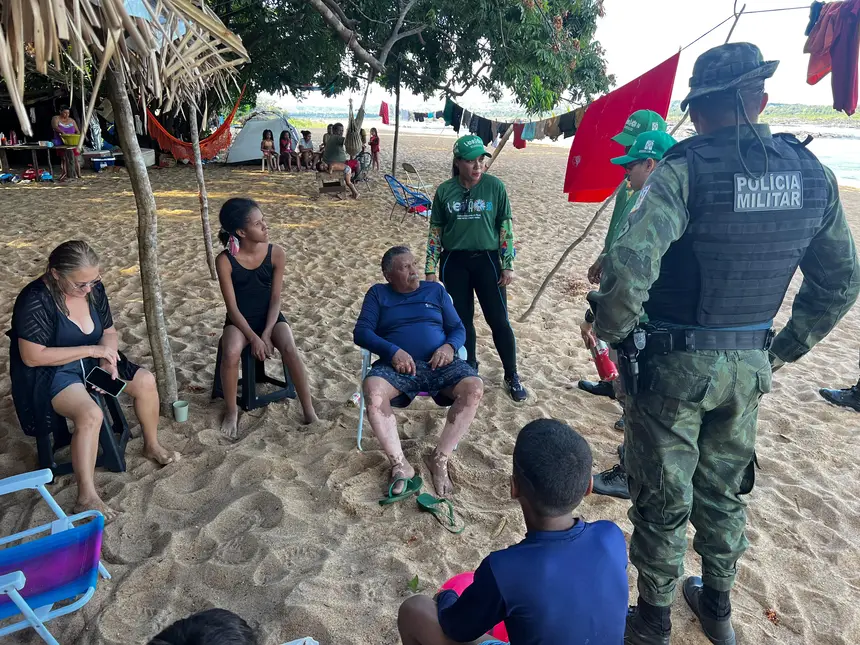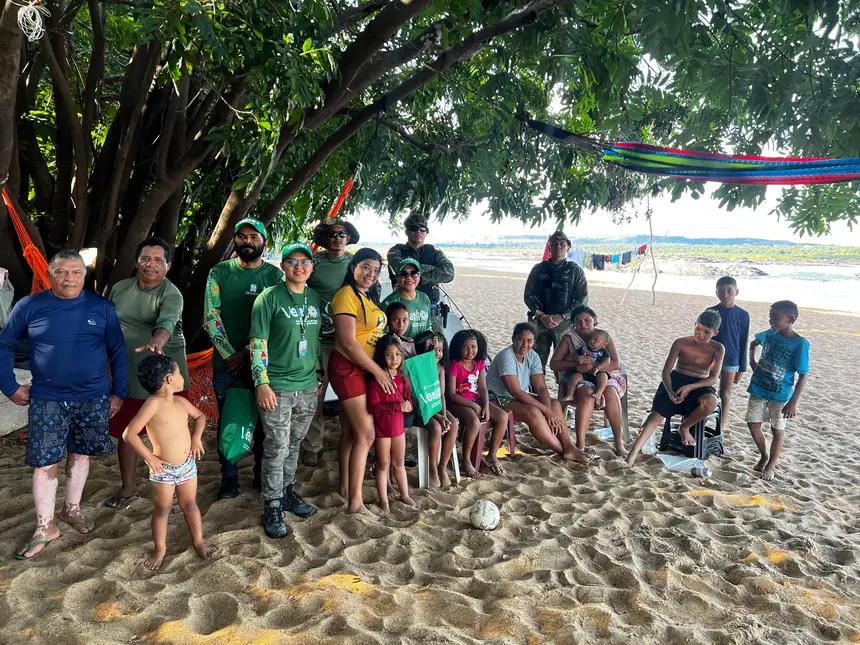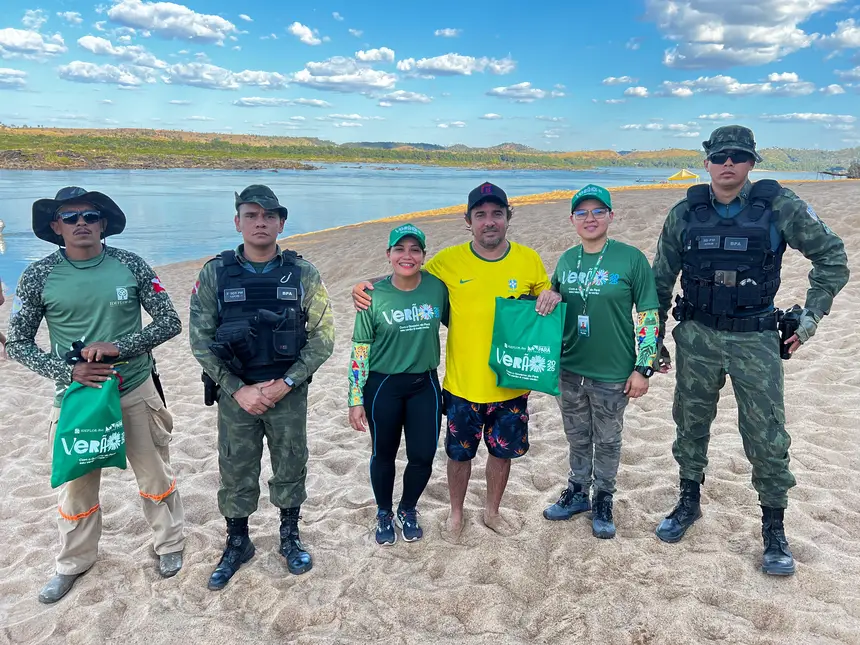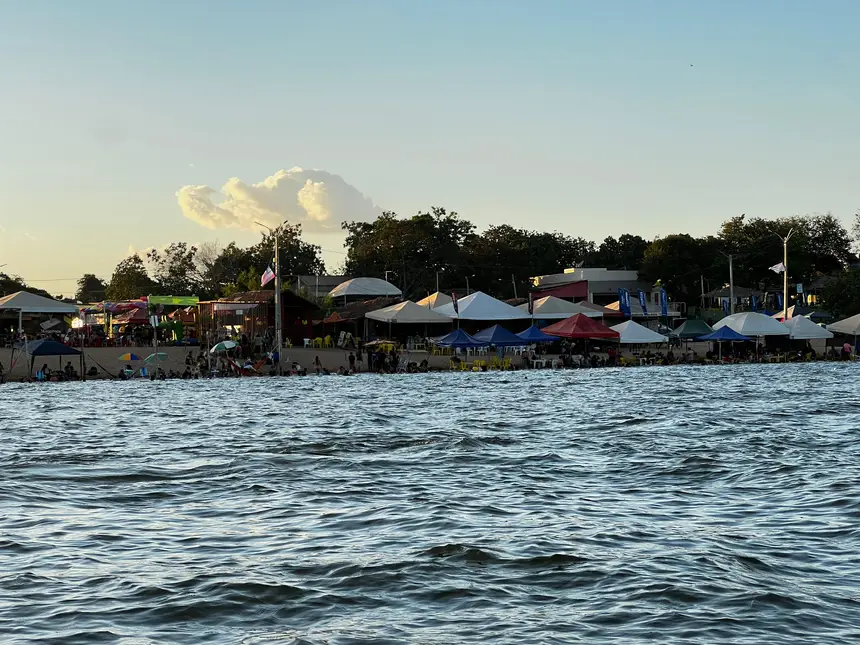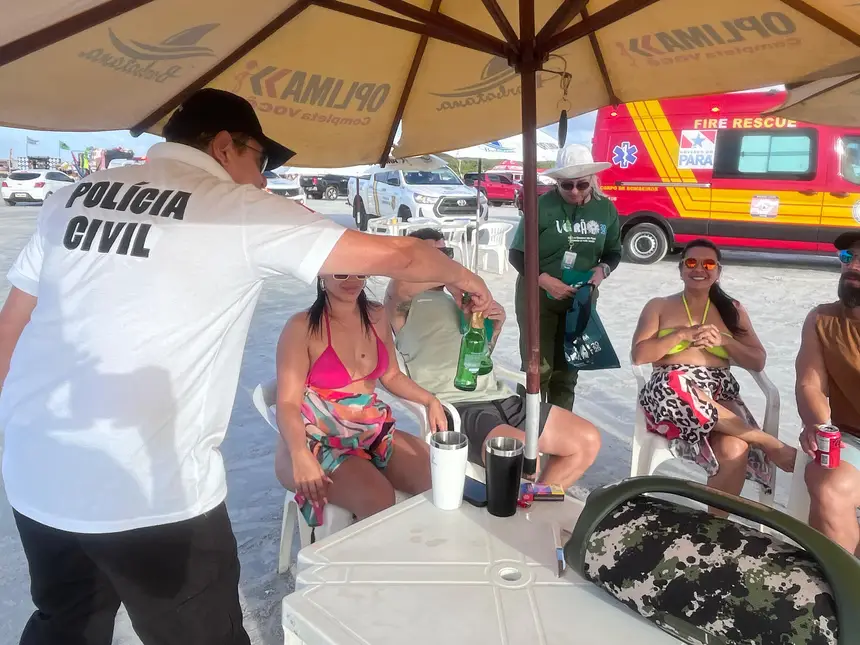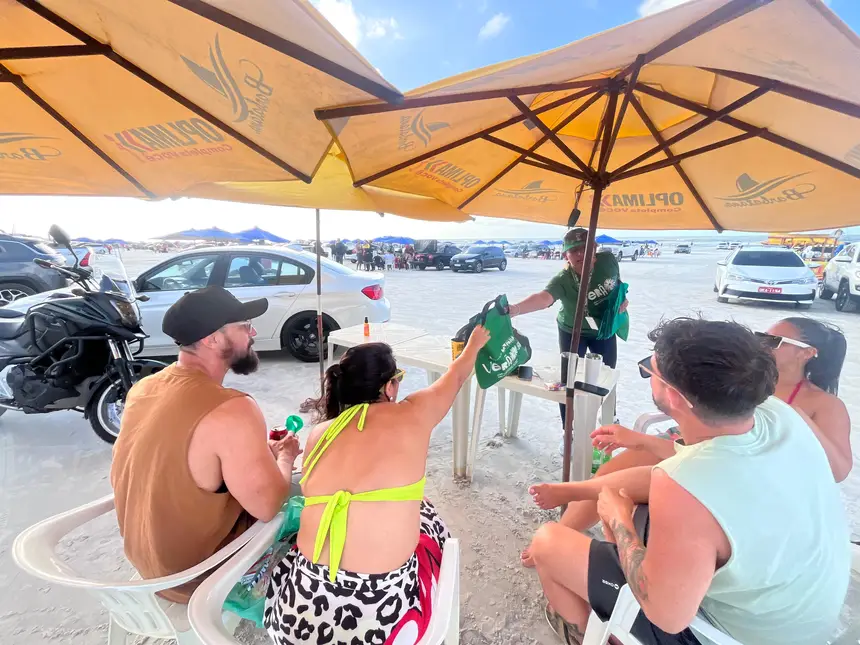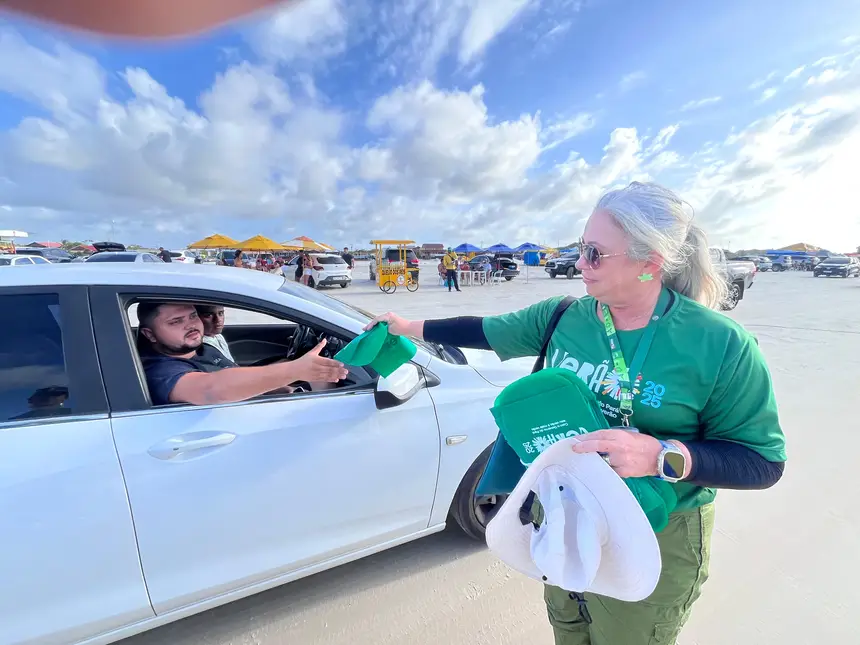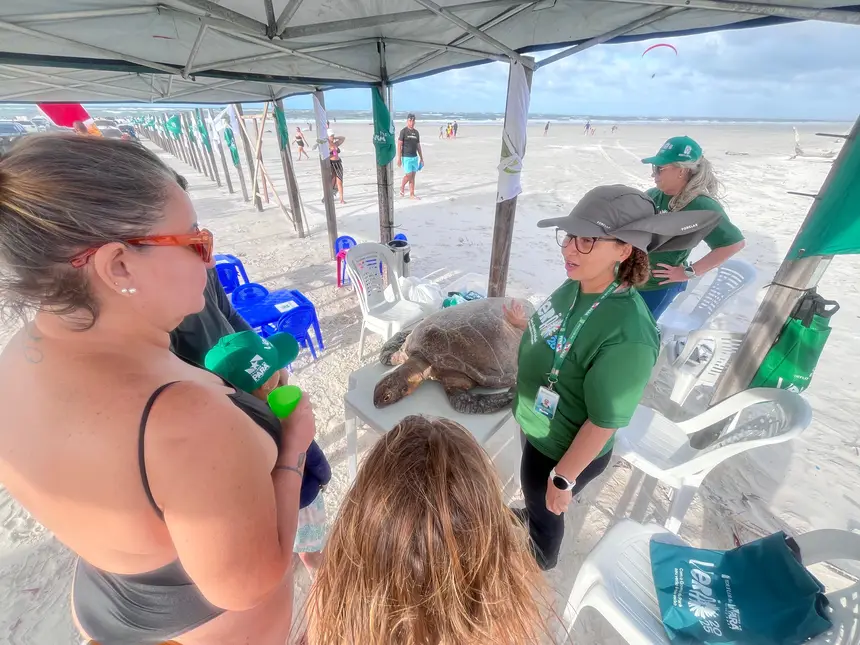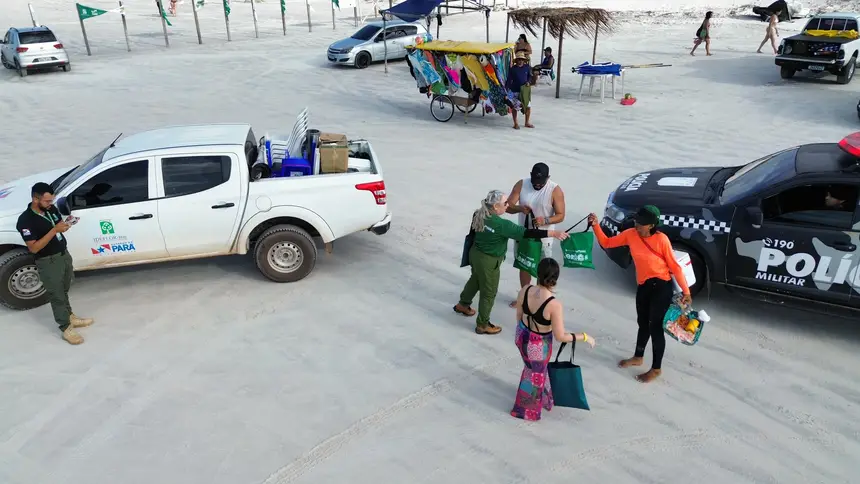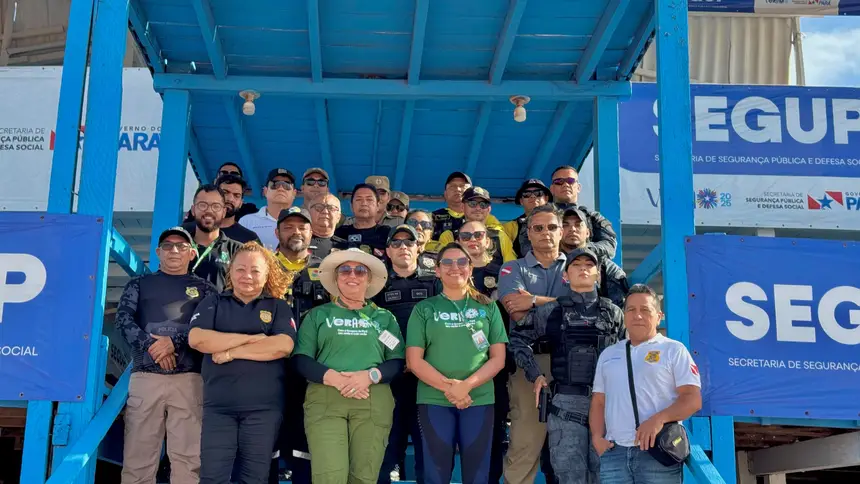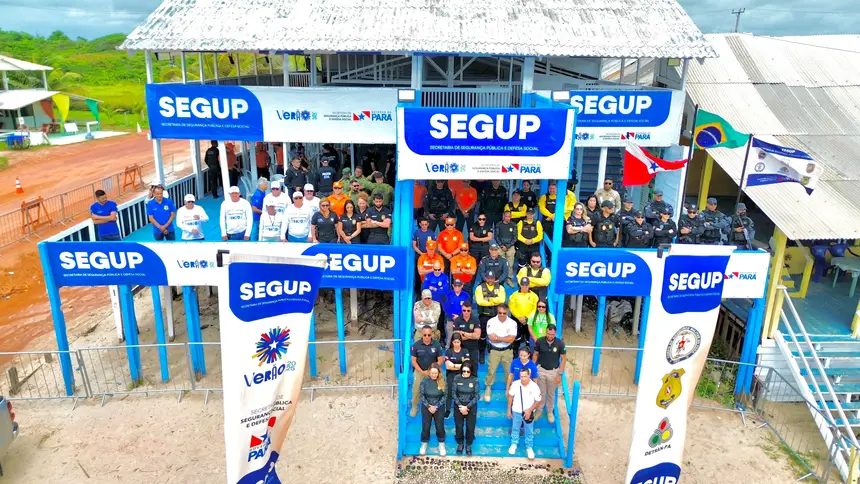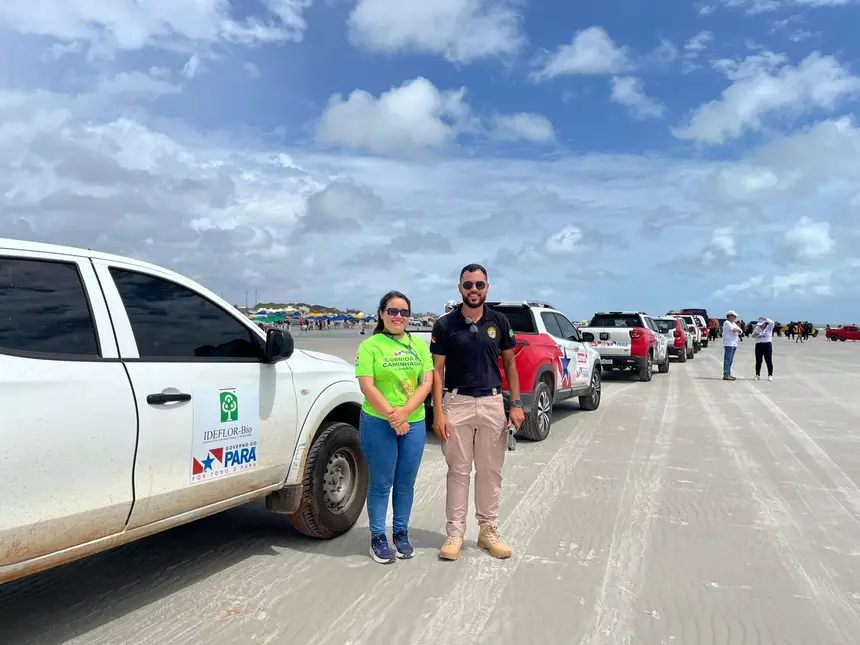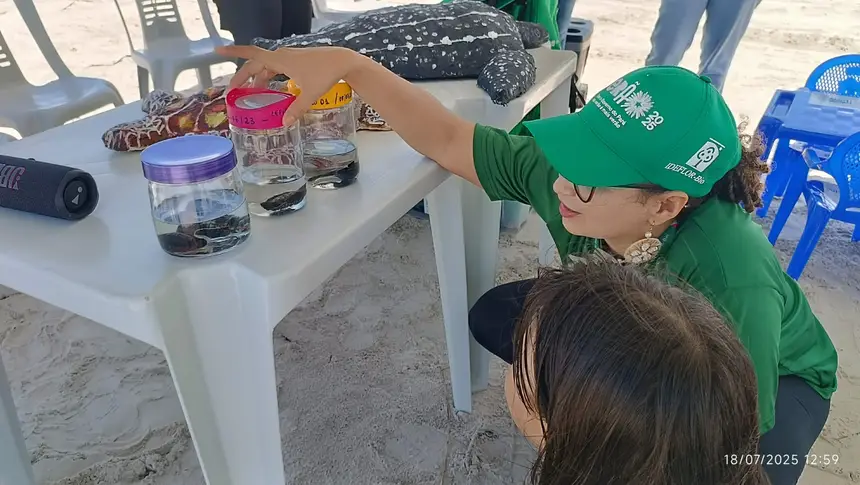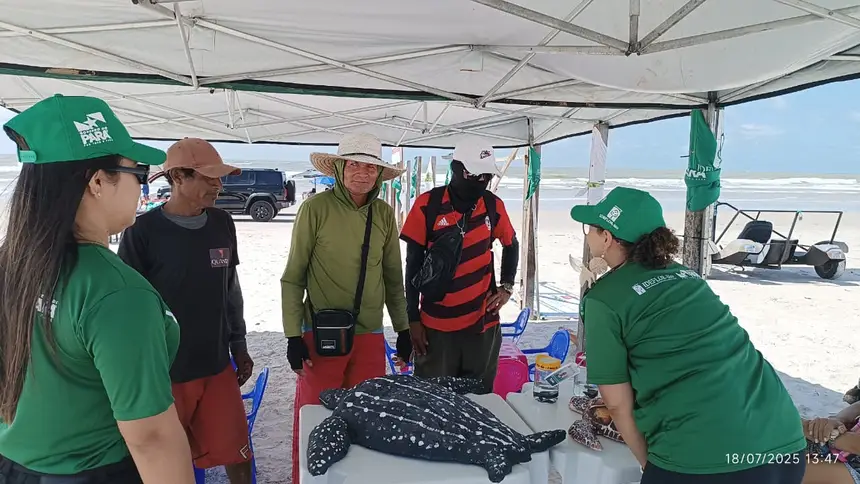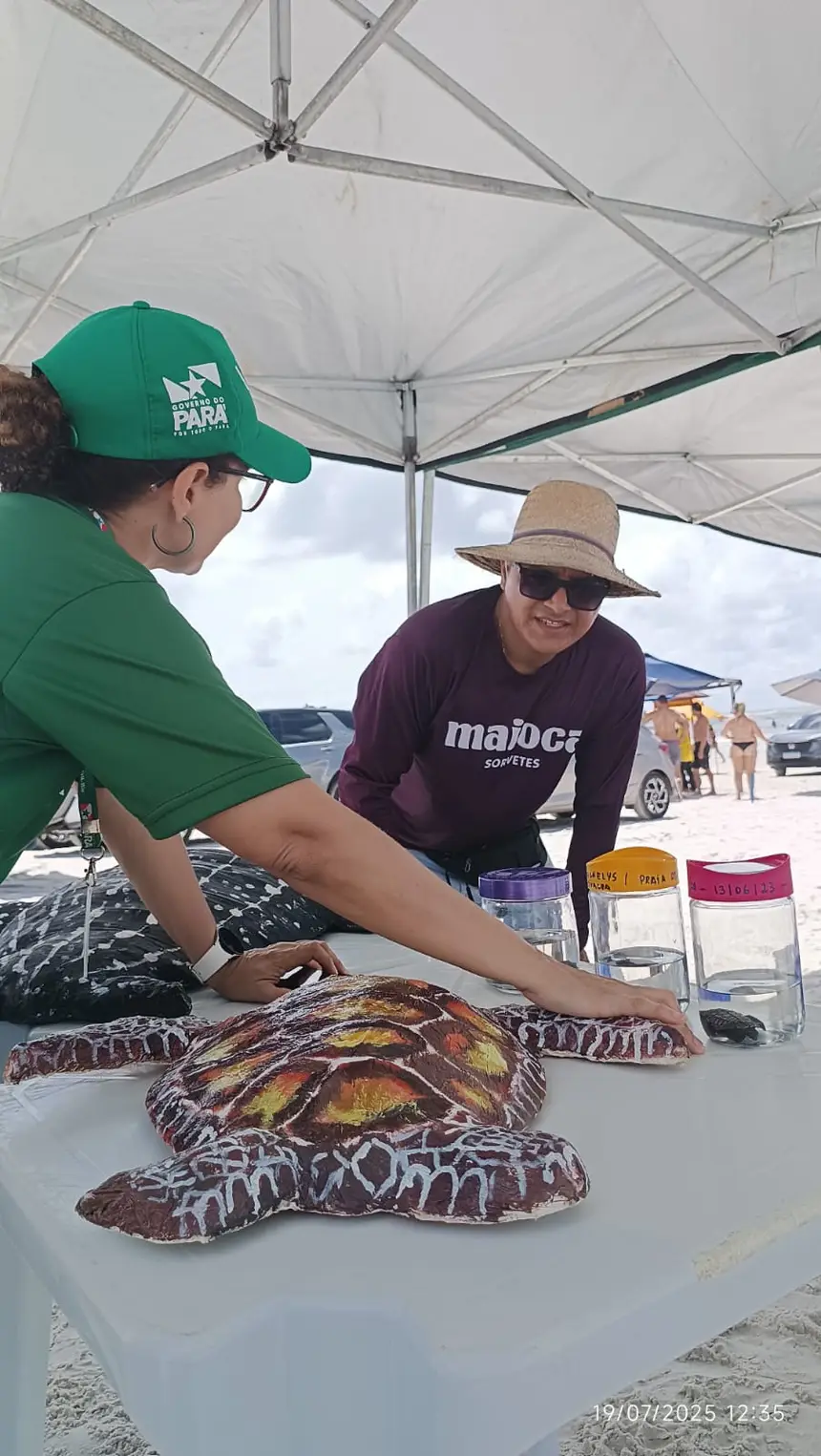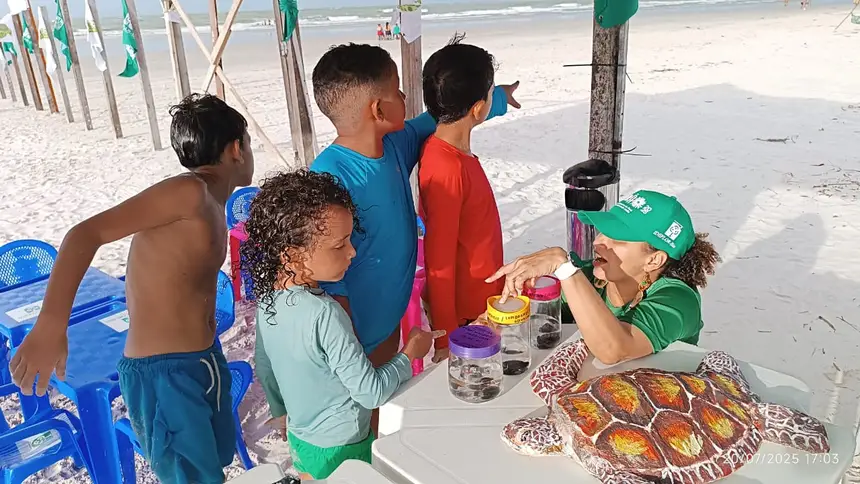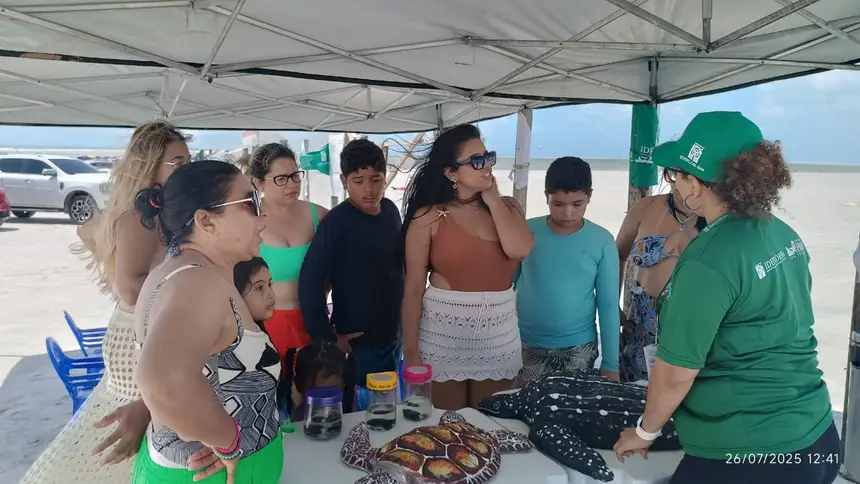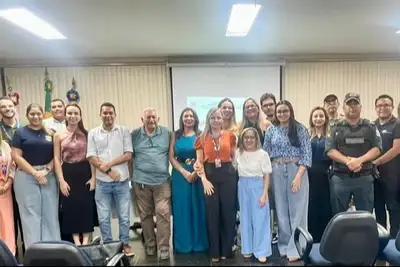Algodoal, Ponta de Pedras, Salinópolis and São Geraldo do Araguaia receive environmental actions from Ideflor-Bio
In addition to educational activities, Ideflor-Bio's actions during the Summer Operation 2025 involve collaboration with security agencies and local municipalities, ensuring that the tourist use of natural areas occurs responsibly.
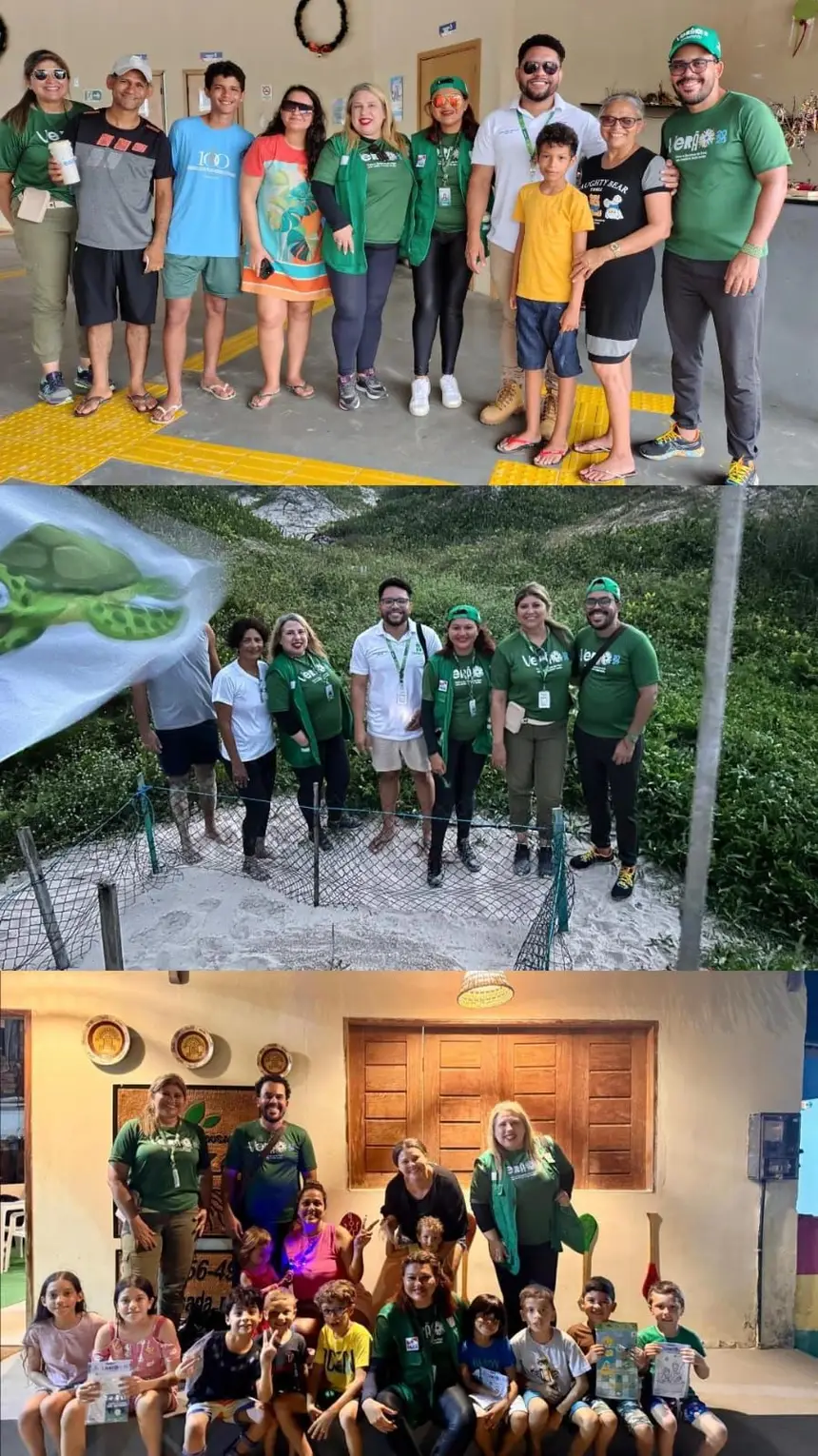
The Government of Pará, through the Institute of Forest Development and Biodiversity (Ideflor-Bio), continues to strengthen its presence in strategic regions of the state with environmental education, inspection, and sustainability promotion actions during the month of July. The activities are part of the Summer Operation 2025 and, this past weekend, they arrived in full force to the municipalities of Maracanã (Algodoal), Ponta de Pedras, Salinópolis, and São Geraldo do Araguaia, especially in coastal areas and Conservation Units (UCs) that are heavily frequented by summer visitors.
In addition to educational activities, Ideflor-Bio's actions during the Summer Operation 2025 involve collaboration with security agencies and local municipalities, ensuring that the tourist use of natural areas occurs responsibly. "It is a way to protect the environment and also make the outing more enjoyable. We learn and start to take better care," said merchant Antônio Rios, who participated in the actions at the Environmental Protection Area (APA) Algodoal-Maiandeua in Maracanã.
There, teams from the Northeast Administrative Region Management (GRNE) began awareness actions early in the morning at the Algodoal Tourist Terminal, welcoming visitors and distributing educational kits containing an eco-friendly bag, cap, reusable cup, and playful materials for children. In the afternoon, the team was at Praia da Princesa, where they reinforced the importance of litter collection and the protection of sea turtles. One of the highlights was the support for the transfer of a turtle nest to the island's nursery.
Still on the Pará coast, Salinópolis was also the stage for an intense agenda. In the Atalaia Beach area, Ideflor-Bio technicians promoted educational actions with children and adults, highlighting each citizen's role in preserving the coastal ecosystem. Summer kits with eco-friendly bags and recyclable cups were distributed as an incentive to reduce waste. "I was surprised to learn that there is turtle nesting here in Salinas. Now we are more aware of how to act on the beach so as not to disrupt this," said 16-year-old student Gabriela Lima.
Southeast - In São Geraldo do Araguaia, in the southeast of the state, the team from the Araguaia Administrative Region Management (GRA) brought environmental awareness to the beaches of Santa Cruz, Ilha de Campo, and Remanso dos Botos, near the Serra dos Martírios/Andorinhas State Park and the APA Araguaia. Guidance actions on the correct disposal of waste, respect for fauna and flora, and responsible use of natural areas were conducted with bathers and residents, and were also carried out at Praia da Gaivota, with an emphasis on actively listening to the community's demands.
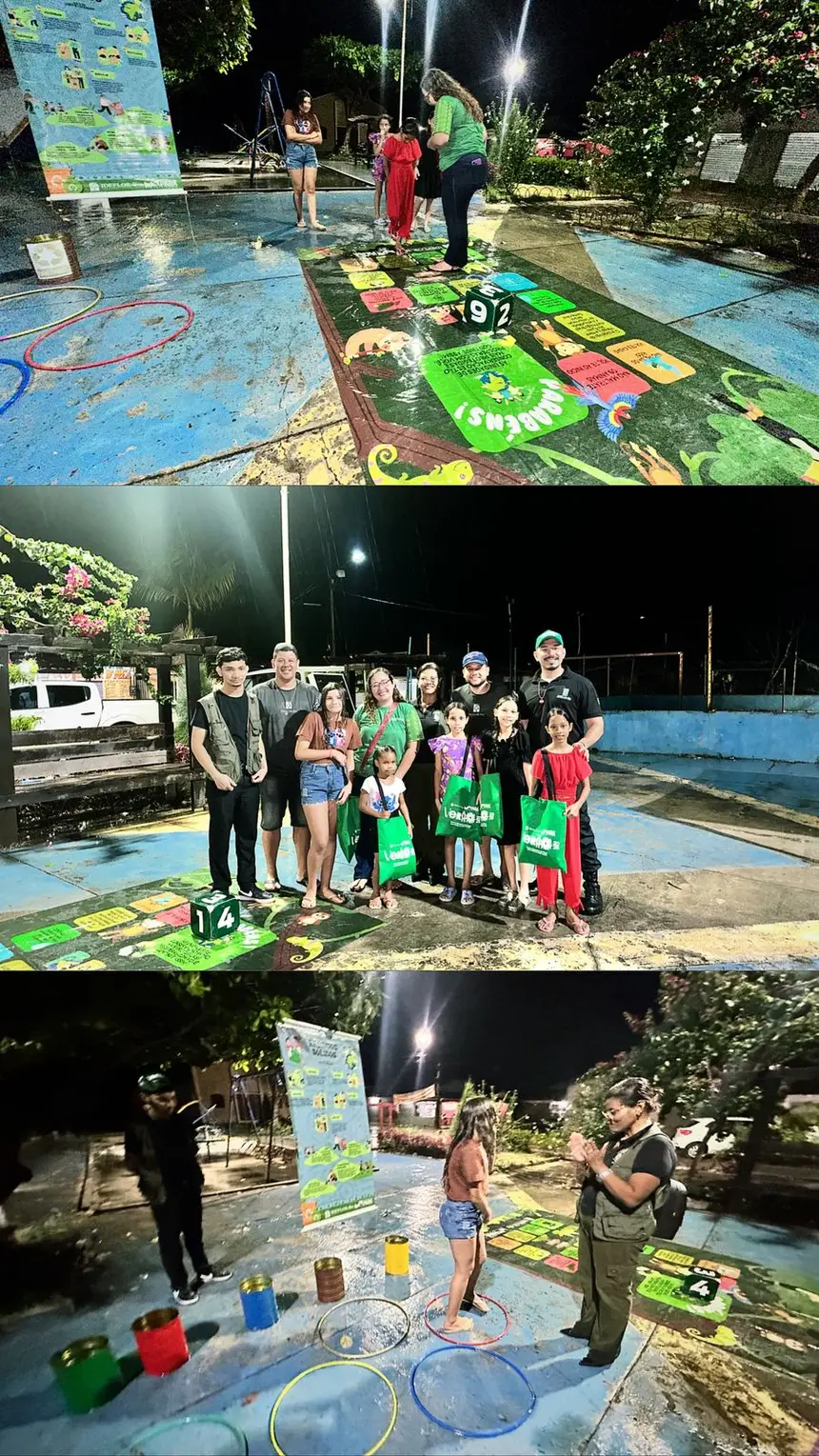
Marajó - In Marajó, the municipality of Ponta de Pedras received an agenda focused on sustainability and valuing local natural riches. In the morning, teams from the Marajó Administrative Region Management (GRM) held a meeting with the COOPUP Cooperative about the disposal of açaí waste and income generation from the reuse of seeds. Throughout the day, educational actions were carried out in the communities and at the municipal headquarters, with the support of the local Environmental Secretary, which expressed interest in transforming an area of urban forest into a protected municipal grove.
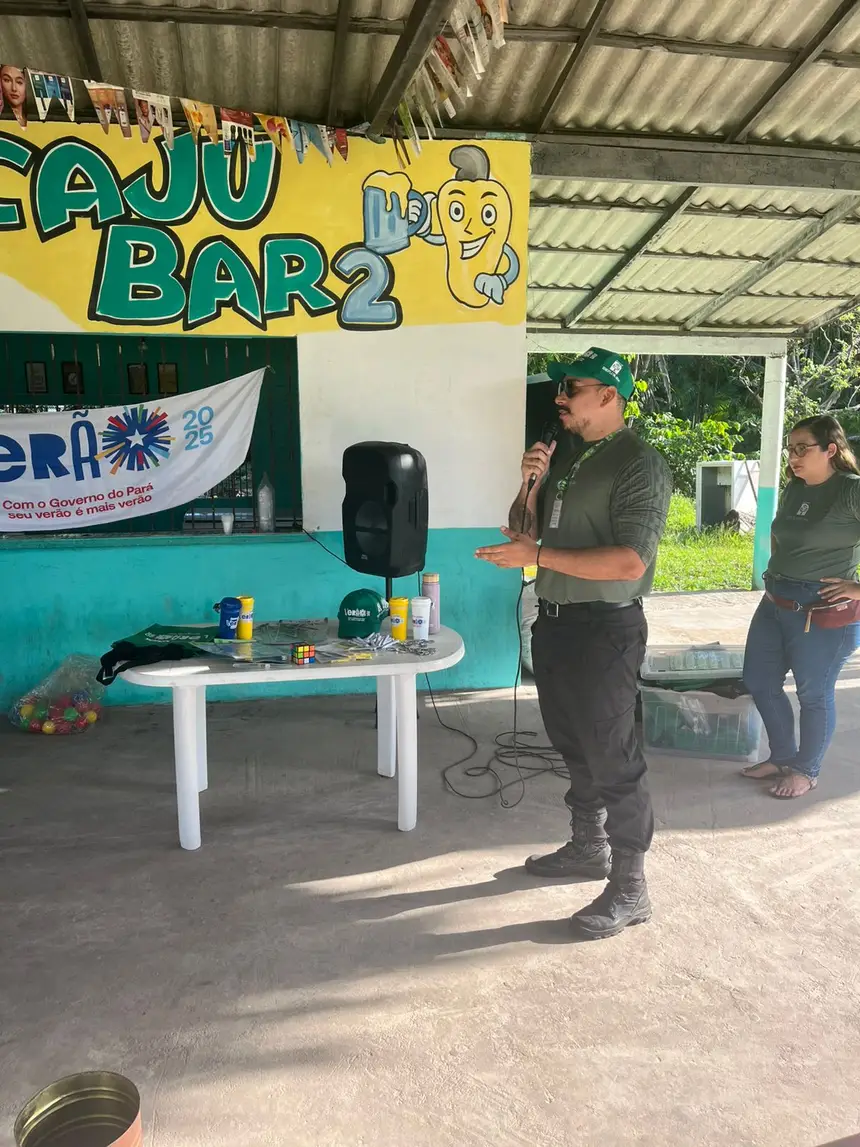
Presence - As the Amazon summer continues to attract thousands of people to Pará's resorts, the agency bets on coordinated and integrated actions as a path to environmental conservation. The Summer Operation 2025, led by Ideflor-Bio, has shown that it is possible to reconcile leisure, education, and sustainability throughout the state.
According to Ideflor-Bio President Nilson Pinto, the active presence of the Institute in municipalities during the holiday season is of great importance. "Our commitment is to ensure that the tourist use of our natural beauties occurs in a conscious and responsible manner. We are uniting education, inspection, and citizenship so that each summer visitor becomes a preservation agent," he declared.
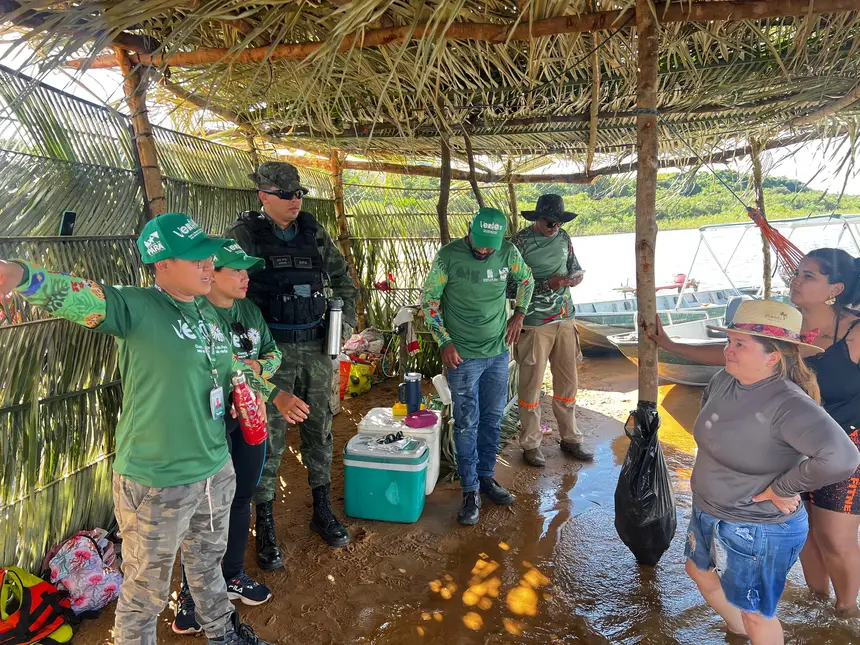
For the Director of Management and Monitoring of Conservation Units at Ideflor-Bio, Ellivelton Carvalho, the summer actions reflect the Institute's commitment to an integrated approach. "We bring environmental education to all audiences, but we also articulate solutions with communities and local managers, reinforcing the social role of Conservation Units in the sustainable development of territories," he stated.


